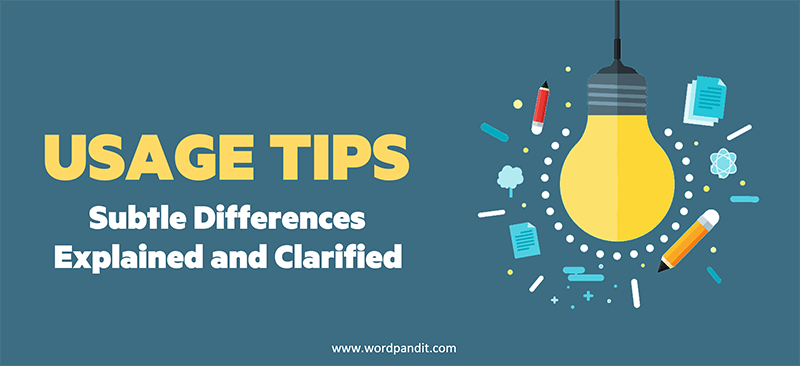Collaborate vs. Corroborate: Understanding the Difference 🤔✨
Have you ever found yourself mixing up “collaborate” and “corroborate”? 🤷♂️ You’re not alone—these two words look similar, and their meanings aren’t a world apart, which makes them prime candidates for confusion. But don’t worry; understanding the difference is easier than you think, and getting it right can make you sound all the more polished in your conversations and writing. 🗣️✍️ In this article, we’ll break down both words in detail, giving you the tools to use them confidently and correctly. Let’s dive in! 💡👇
Collaborate 🤝
Definition: To collaborate means to work together with someone to achieve a goal. It typically involves two or more people coming together to create something, solve a problem, or complete a task. Collaboration is often seen in creative projects, research, or any group effort where shared input leads to a better outcome. 👫👨👩👧👦
Pronunciation: kuh-LAB-uh-rayt 🔊
Etymology: “Collaborate” comes from the Latin word collaborare, which means “to work together.” This idea of joining forces is at the core of its meaning today, reflecting teamwork and unity of effort. Whether it’s a business partnership or a community project, collaboration emphasizes the power of collective action. 💪✨
Usage Examples:
- The two companies decided to collaborate on a new product, combining their resources and expertise. 🏢🤝🏢
- Artists often collaborate to bring fresh perspectives to their work, blending different styles to create something unique and exciting. 🎨🖌️
- In the medical field, doctors and researchers collaborate to find new treatments and solutions for complex health issues. 🧑⚕️👨🔬💡
Synonyms & Antonyms:
- Synonyms: Cooperate, team up, partner, join forces 🤗
- Antonyms: Compete, oppose, resist 🚫
Corroborate ✅
Definition: To corroborate means to provide evidence or support to confirm something. It’s all about backing up a claim or giving additional credibility to a statement. Corroboration often involves providing facts, testimony, or data that strengthens an argument or helps prove that something is true. 📊🔍
Pronunciation: kuh-ROB-uh-rayt 🔊
Etymology: “Corroborate” comes from the Latin corroborare, meaning “to strengthen.” It’s a perfect fit for its current meaning—strengthening an argument or claim with extra proof. The word’s origin emphasizes the act of making something more solid and reliable by adding supporting information. 💡🛠️
Usage Examples:
- The witness was able to corroborate the suspect’s alibi, providing details that matched the timeline of events. 👨⚖️🕒
- The study corroborates previous findings that exercise benefits mental health, giving additional weight to the argument that physical activity is crucial for well-being. 🏃♀️🧠
- The detective needed more evidence to corroborate the suspect’s story before making an arrest. 🕵️♂️🔎
Synonyms & Antonyms:
- Synonyms: Confirm, validate, verify, substantiate 👍
- Antonyms: Contradict, refute, disprove ❌
Comparison and Contrast 🔄
The key difference here is in their actions. Collaborate is about teamwork and coming together to create or achieve something. Think of artists creating a mural, musicians producing a song together, or scientists working on a groundbreaking research project. 🎨🎶🔬 Collaboration emphasizes the shared effort to reach a common goal.
Corroborate, on the other hand, is all about adding support to something that already exists—providing evidence, validating a claim, or verifying information. 📑 Imagine a detective corroborating a witness’s statement with video footage or a journalist using multiple sources to corroborate a story. Corroboration is about confirming the truth of something by adding reliable evidence. ✅📹
Contextual Usage ✍️
The scientists decided to collaborate on the research project, pooling their resources and expertise, and each aimed to corroborate the initial hypothesis with solid evidence through experimentation and data analysis. 🔬📊
The journalist sought experts to corroborate the information before publishing it, ensuring accuracy, while her team continued to collaborate on the final draft to make the story more engaging and well-rounded. 📰🤝
Mnemonic Device 🧠💡
Here’s an easy way to remember the difference:
- “Collaborate” contains “labor” – think of working or laboring together with others to achieve something. 🤝
- “Corroborate” sounds like “robust” – think of making something more robust or supported with evidence. When you corroborate, you’re making an argument stronger and more reliable. 💪📑
Related Words 🔄📚
If you found these words confusing, you might also want to check out other commonly confused pairs like affect vs. effect ✨, imply vs. infer 🤔, or complement vs. compliment 💬. Understanding these can help sharpen your communication skills even further. Each of these word pairs involves subtle differences that, when mastered, can greatly improve your precision in language. 📈✍️
Conclusion ✅
By now, you should feel comfortable telling “collaborate” and “corroborate” apart. Remember, “collaborate” is all about teamwork and collective effort 🤝, while “corroborate” is about providing evidence and confirming information. 📑 Mastering distinctions like these not only boosts your language skills but also enhances your confidence in both writing and conversation. These differences are small but powerful, and using the right word at the right time can make all the difference in how effectively you communicate. You’ve got this! 💪🗣️
Quick Quiz 📝: Collaborate & Corroborate
1. The two researchers decided to ___ to complete the project on time.
2. The lawyer asked the witness to ___ the client’s statement.
3. Collaborate means to provide evidence in support of something.
4. Which word is a synonym of “verify”?
5. The two directors decided to ___ on a new movie project.
6. The scientists decided to ___ on the new experiment while trying to ___ the previous results.
7. Which word has its origins in Latin meaning “to strengthen”?
8. The word “corroborate” can be used to describe working together.
9. The authors decided to ___ on the book and asked experts to ___ their claims.













